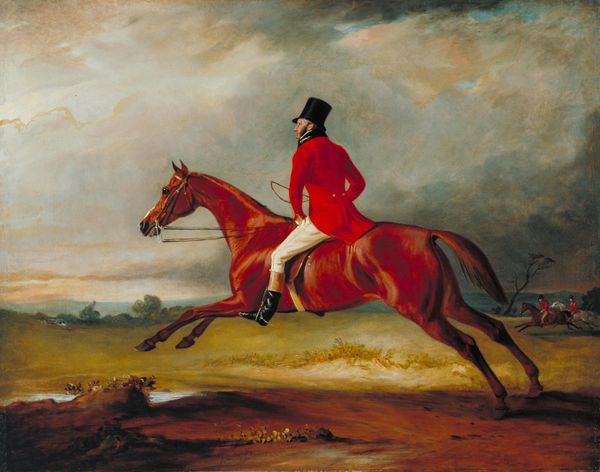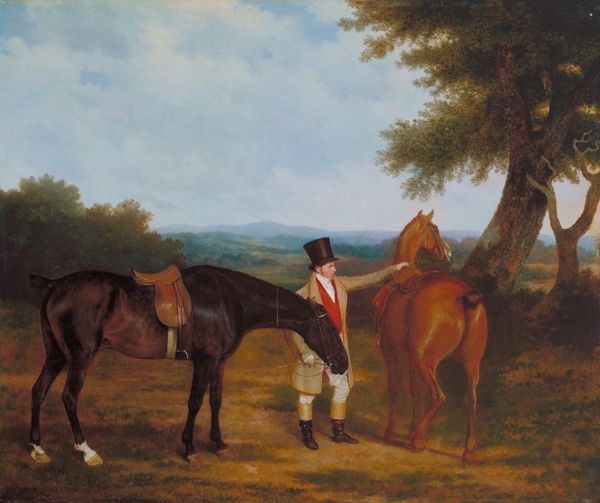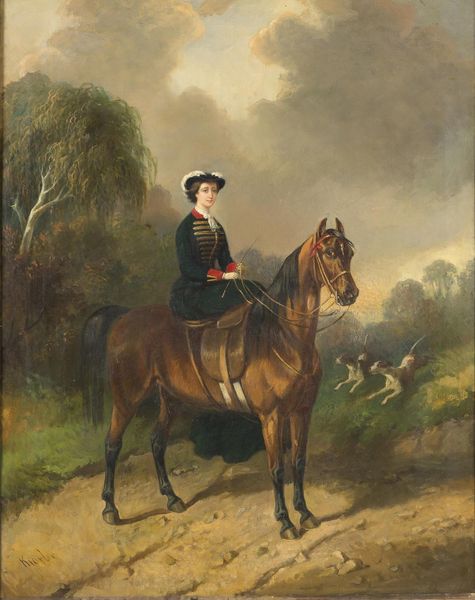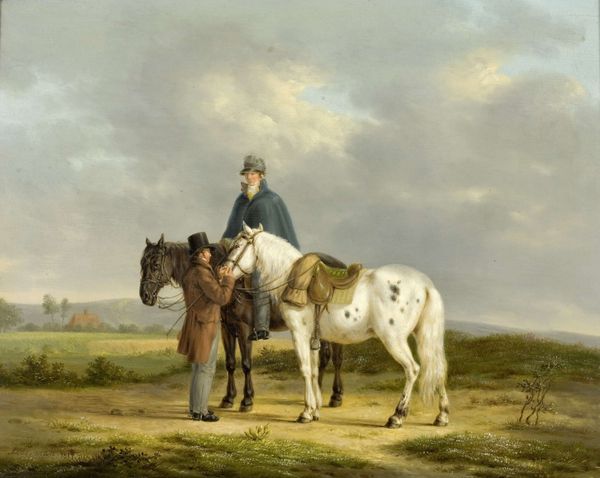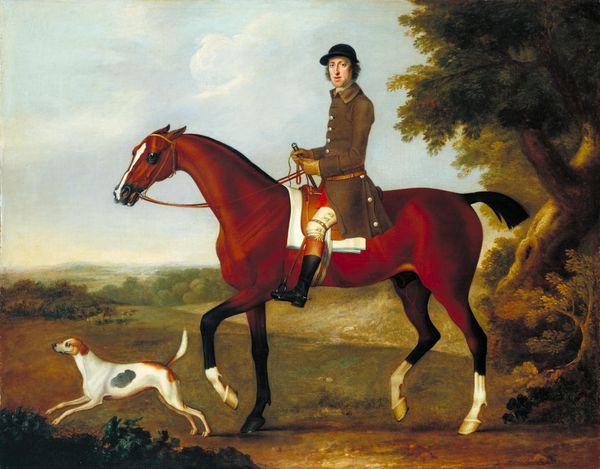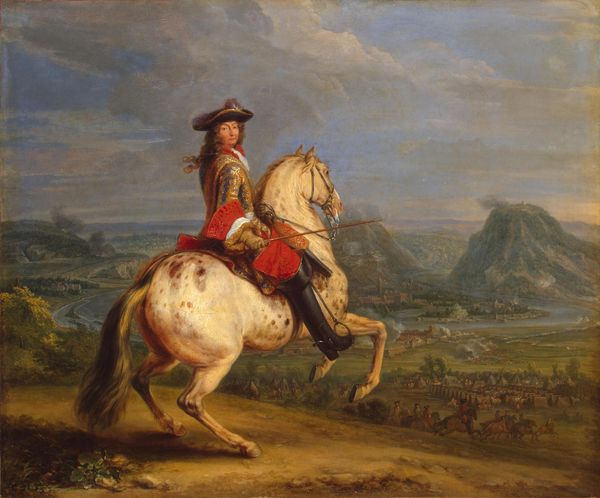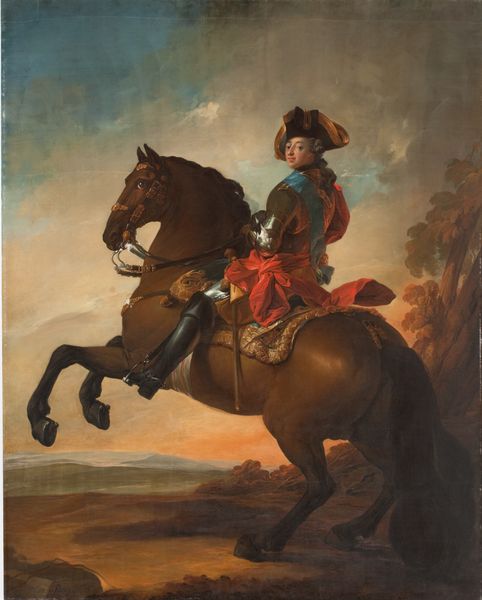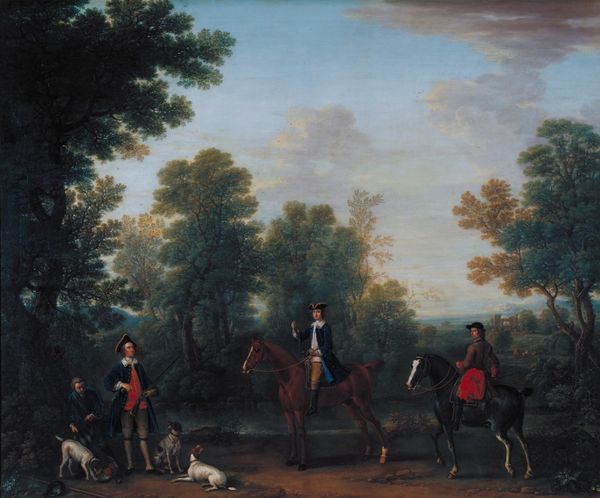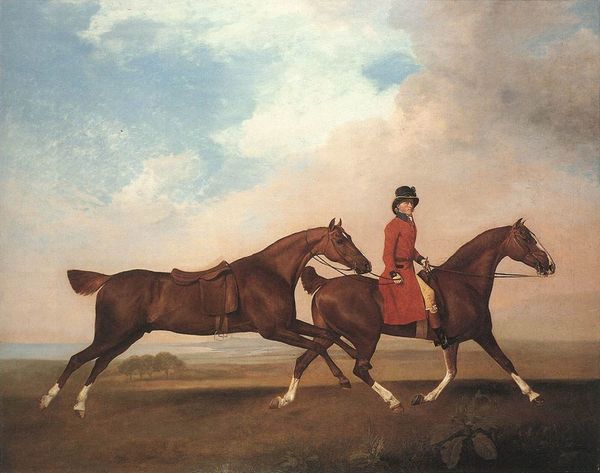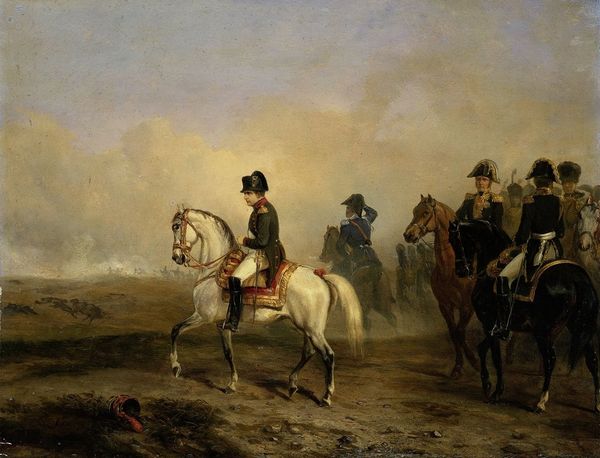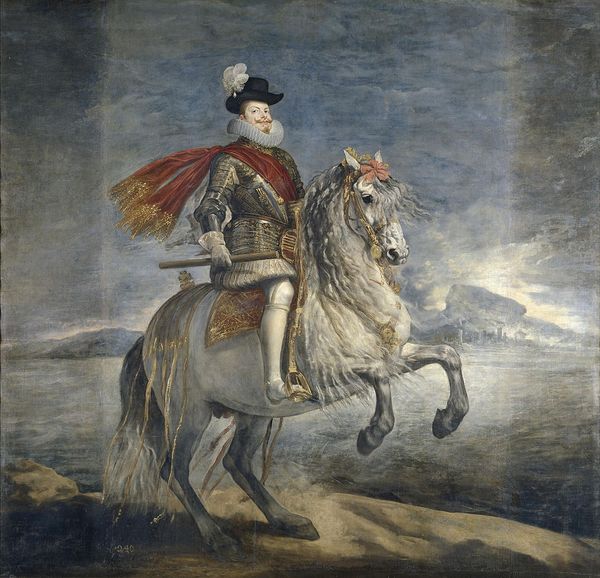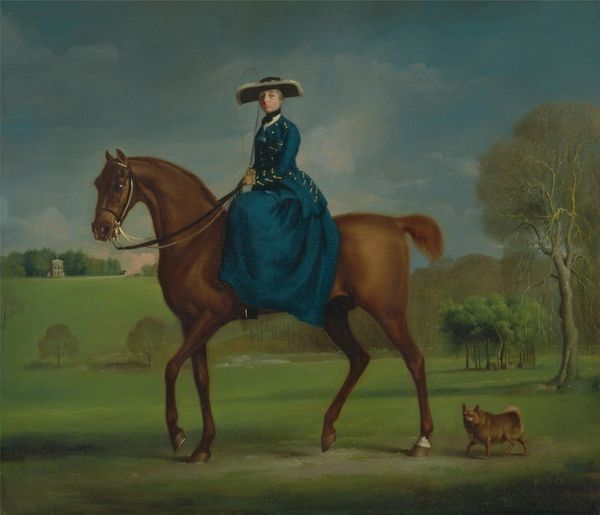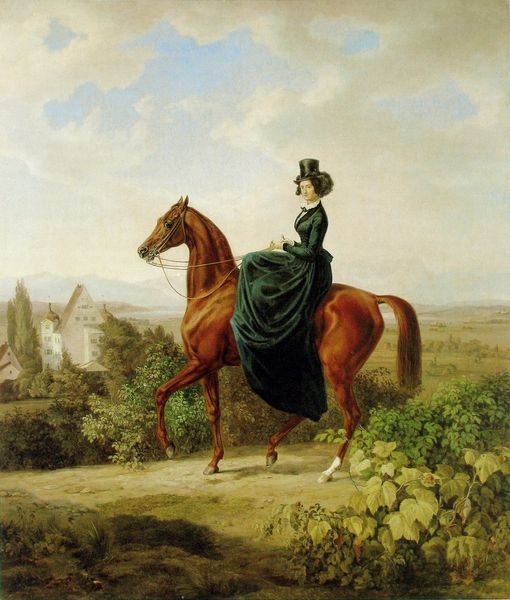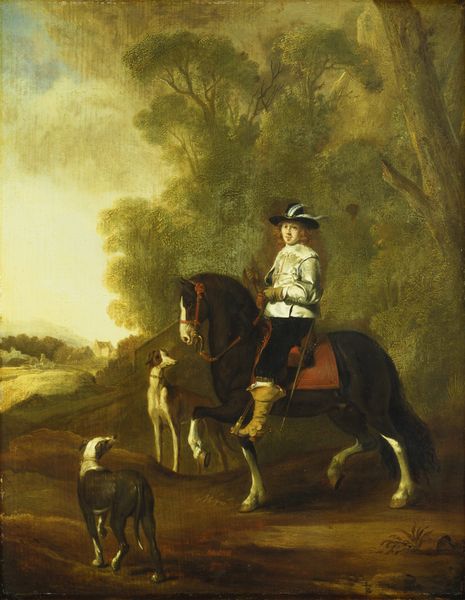
painting, oil-paint
#
portrait
#
figurative
#
painting
#
oil-paint
#
landscape
#
oil painting
#
romanticism
#
genre-painting
#
history-painting
Copyright: Public Domain: Artvee
Editor: This is James Ward's "Theophilus Levett and a Favorite Hunter," painted in 1817 using oil on canvas. It’s quite a striking image, the red coat of the rider really pops against the landscape. It's hard to know where to begin describing it though, the whole scene looks grand, but how do you even start to unpack a painting like this? Curator: Precisely! Let us observe the painterly gestures within the visual field. Notice how the compositional structure is orchestrated to direct the gaze? Editor: You mean the placement of the figures and the landscape elements? Curator: Precisely. The elevated vantage point immediately establishes a sense of command, doesn't it? A certain gaze that implies power. Also, observe the meticulous detail given to the textures—the sheen on the horse's coat juxtaposed with the roughness of the terrain. Does this not strike you as intentional? Editor: It does now that you mention it! There’s definitely a contrast between the cultivated rider and the wilder landscape. How does that contribute to the painting's overall effect? Curator: Consider this opposition. The structure emphasizes a claim to dominance. Man’s, specifically Theophilus Levett’s, mastery over nature. How is this effect enhanced by color, by shape, and by the relationship between foreground and background? What if the figures were not arranged in this way, and instead were, say, placed deeper into the background or to the side? Editor: I see what you mean. Changing the figure placement and landscape setting changes the overall visual narrative! So, Ward is deliberately creating these contrasts through structure to say something about Theophilus Levett and his position within the landscape. Thanks for opening my eyes! Curator: Indeed. Formal analysis enables a deeper appreciation. And with greater understanding comes new revelations.
Comments
No comments
Be the first to comment and join the conversation on the ultimate creative platform.
